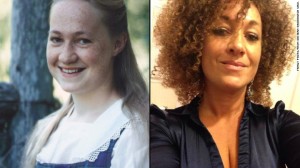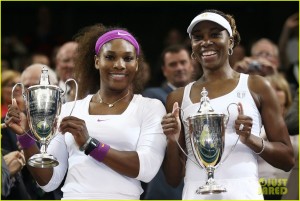Rachel Dolezal , head of the Spokane, Washington NCAAP (National Association for the Advancement of Colored People), the largest black advocacy organization in the US, has white parents, whose heritage is European-American, mostly German and Czech, according to her father. She is clearly not African-American biologically. But in recent years she has been active in leadership and advocacy roles for African-Americans, teaching African heritage course. Ironcially, as a college student, Dolezal sued Howard University, a historically black university, alleging discrimation against her in favor of African-American students. The revelation that Dolezal is not black stirred a social media firestorm when the news broke recently. According to CNN:
Some defended her by pointing to her activism and efficacy as a leader while adding that someone shouldn’t be barred from being a civil rights leader because they’re white. Others blasted her for lying and asserting she’d diminished the real struggles of African-Americans by claiming she had suffered hurtful racism like them, even though she grew up white in Montana, and had used that identity to advance her career as an activist.
Her identification as black has been especially controversial in the African-American community. It brings to the fore experiences that that community has had in the US. Historically, if there has been a trace (“a drop” in race laws) of black blood, that US citizen is identified as “black”. Black Americans have not had the option of presenting and performing as “white”, even if they were, like Barack Obama, of mixed white/black heritage. In that sense, Dolezal’s claim to be “black” has been seen as a instance of “white privilege” – white people can choose their race, while blacks can not. The case has also brought up another identity issue currently under discussion: how is that it is possible to choose ones gender (i.e., Caitlyn Jenner) but not one’s race?
On the lighter side is comedian Dave Chapelle’s take on the case: “The world’s become ridiculous…There’s a white lady posing as a black lady. There is not one thing that woman accomplished that she couldn’t have done as a white woman. There’s no reason! She just needed the braids!”

